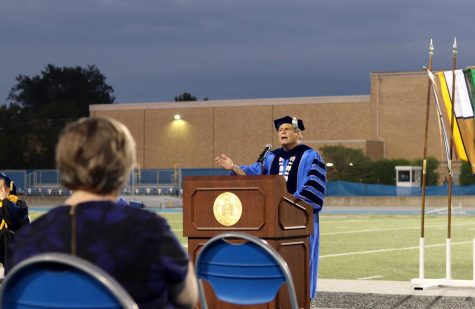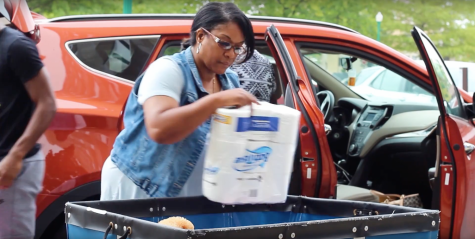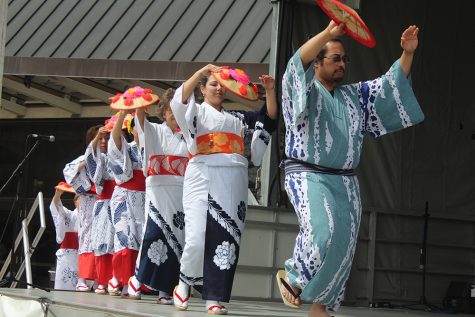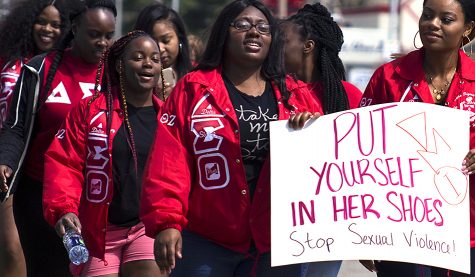What does Lou do?
In a survey conducted to a random 100 students on campus, 82 percent of students agree that President Lou Hencken is doing a good job, and they believe Eastern is fine the way it is.
However, many students said they were unaware of the work Hencken does, and many students even responded to the survey with, “Wait, isn’t he retired now?”
One student even wrote right on the survey that he or she has “no idea” as to what the president does.
Hencken, who was appointed to his position indirectly by the governor (since the governor selects the board of directors that picks Eastern’s president), contemplated retirement last year. Yet, he decided to stick it out for one more year.
Although the voting for the governor that would select a new board of directors probably wouldn’t affect the president this time around, it could have repercussions down the road.
“I just feel that most of our peers don’t vote because of their age or because of their status, and they feel like they can’t make a change and that they can’t make a change even if they do speak out,” said student Samara Chapman.
Hencken started out as president on Aug. 1, 2001, but has been at Eastern roughly 40 years prior to that, rising from a resident hall assistant to vice president for student affairs before becoming president.
Describing the job in an Aug. 23 issue of the Daily Eastern News article as “a 24-hour and seven day a week job,” Hencken’s efforts still go unrecognized by at least some of the campus.
“He’s a politician. The only news I hear or see is mediated,” one student said.
But with record high enrollment numbers this fall, a total of 12,317 registered students, it’s hard to say anything bad about the campus or the job the president is doing.
“I think that they’re [Eastern’s administration] fine on campus. I see them everywhere. I see President Hencken and [vice president for academic affairs] Blair Lord a couple times a week, so I don’t think there’s really a problem with them being involved on campus,” student Katie Keach said.
While 82 percent said that the campus is fine, 16 percent said it could be improved and only two percent said they officially “did not know.”








































